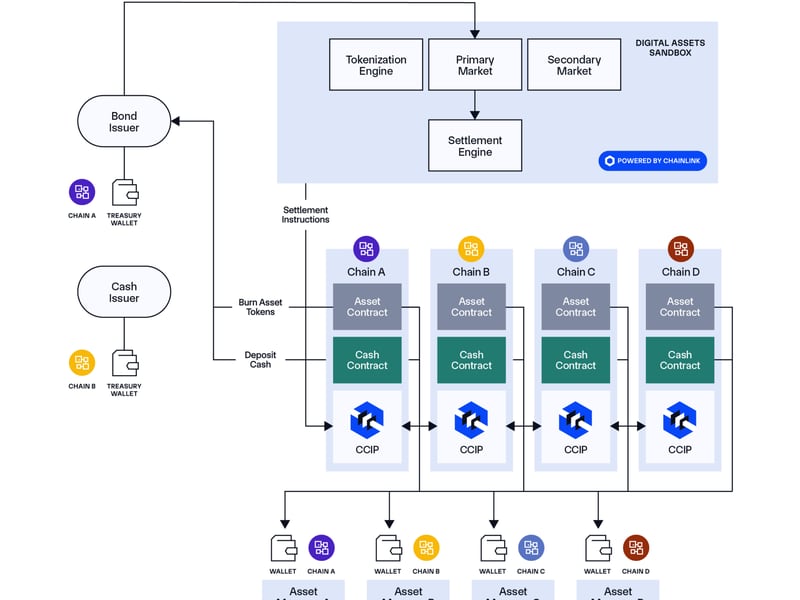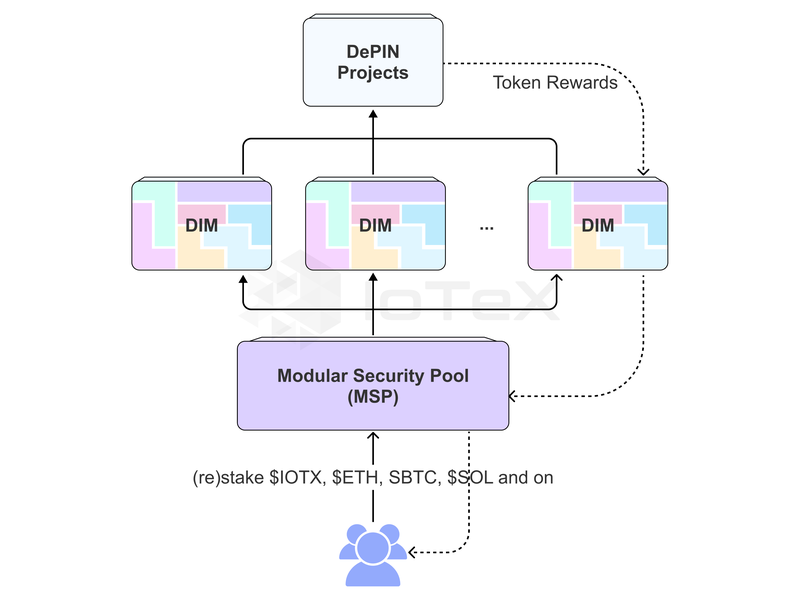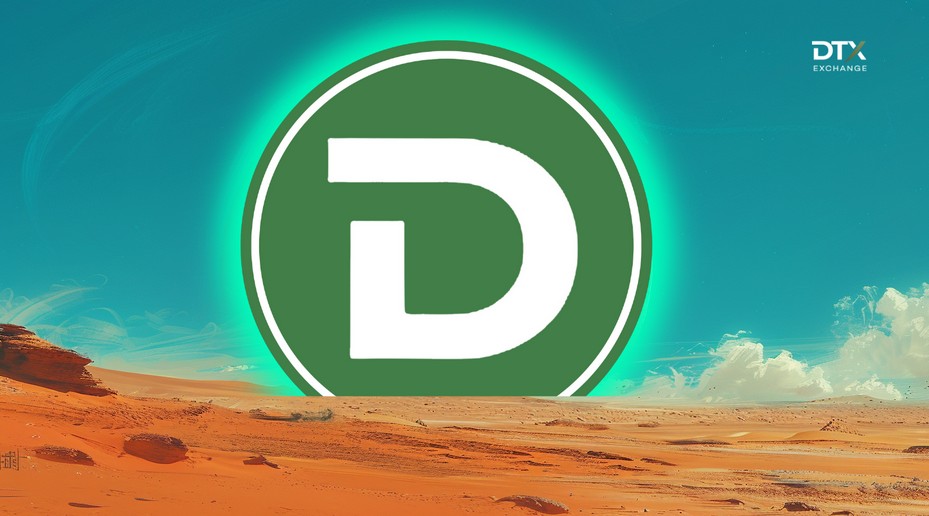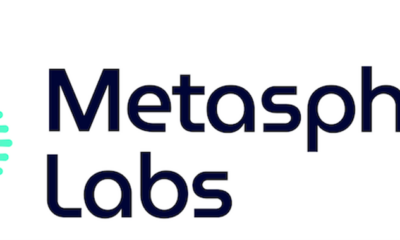DeFi
Protocol Village: Shape, Creator-Focused Ethereum L2 in Optimism Superchain, Makes Testnet Available | Currency News | Financial and Business News

(PROTOCOL VILLAGE EXCLUSIVE) July 18: Shape, a creator-focused layer-2 network atop Ethereum and part of the Optimism Superchain, announced the availability of its testnet, with GA going live in Q3. According to the team: “The network is an open space where everyone is free to create whatever they want – from high art to weird experiments. Shape ensures creators that thrive on the network share in its success through ‘Gasback.’ This mechanic rewards cultural impact directly by giving 80% of sequencer fees back to smart contract owners. Shape is powered by Optimism and, as part of the Superchain, contributes 15% of sequencer fees to the Optimism Collective to fund public goods.”
Chainlink Releases ‘Digital Asset Sandbox’ for Financial Institutions
July 18: Chainlink, the blockchain oracle project, announced the launch of the Chainlink Digital Assets Sandbox (DAS), “designed to accelerate digital asset innovation within financial institutions.” According to the team: “The Chainlink DAS is the ideal solution for financial institutions that want to quickly innovate and experience the potential of generating new revenue opportunities, increasing efficiencies, improving time-to-market, and more. With the DAS, institutions can seamlessly access ready-to-use business workflows for digital assets.” CoinDesk 20 asset: {{LINK}}
Bitrue Ventures Launches $40M Fund for ‘Nascent Web3 Companies’
July 18: Bitrue Ventures, the research and investment section of crypto exchange Bitrue, has launched a $40 million investment fund and “is putting out the call to aspiring developers,” according to the team. A blog post reads: “Individual recipients of funding can receive up to $200,000 of investment funds that can be allocated however they feel is most appropriate. In addition, Bitrue will make available their various avenues of expertise to provide further support to these projects. While Bitrue Ventures will consider investing into any niche within the crypto space, we believe that the most successful projects right now are likely to be building in the sectors of Artificial Intelligence (AI), Real World Asset tokenization (RWA), GameFi, Decentralized Physical Infrastructure Networks (DePIN), and Decentralized Finance (DeFi). As such, projects building within these industries will stand a better chance of receiving funding.”
InfStones, Blockchain Infrastructure Provider, Launches Node-as-a-Service
July 18: InfStones, a blockchain infrastructure provider, “launched its node-as-a-service (NaaS) product, empowering emerging protocols to jumpstart their DePIN projects while making sophisticated blockchain node operations accessible to mainstream users,” according to the team: “Since 2018, InfStones has provided enterprise-grade node management services to industry-leading groups such as Binance, CoinList and BitGo. In the recent node sale for cloud computing platform Aethir, InfStones’ NaaS product helped to successfully convert over 26,000 of its Checker Node license holders into long-term node operators.”
Raise to Provide Payment Rails for Polkadot Mobile App, Enabling Retail Purchases
July 18: Raise, a payments provider and with a white-label gift card infrastructure, has partnered with Parity Technologies “to provide the payment rails for the Polkadot mobile app, enabling DOT payments at over 1 million stores and websites across the U.S.” According to the team: “Users can make purchases and earn up to 20% cash back in DOT. This integration, previewed at Polkadot Decoded, bridges the gap between crypto and retail, making it easier and more rewarding to use crypto for everyday transactions. The app is set to launch in Q3, with plans to expand internationally by the end of the year.” {{DOT}}
Zivoe, RWA Credit Protocol on Ethereum, Raises $8.35M
July 18: Zivoe, a real-world asset credit protocol atop Ethereum, raised $8.35 million in their last round, aiming to broaden credit access by connecting blockchain liquidity with real-world borrowers, according to the team: “The round comes in tandem with Zivoe launching its RWA credit protocol on mainnet on July 31 and their Initial Tranche Offering (ITO), a unique liquidity bootstrapping mechanism.”
AI-Focused Layer-1 Chain Nuklai Announces Launch of DAO for Governance, Say on Use of Funds
July 18: Nuklai, a layer-1 blockchain built for artificial intelligence, announced the launch of the Nuklai DAO, “a decentralized autonomous organization designed to empower its community and ecosystem,” according to the team: “With this development, the company moves towards greater community-driven governance and collaboration. This initiative allows community to have a direct say in the allocation of these funds through proposals and votes on Commonwealth and Snapshot. The launch of the Nuklai DAO will manage the 400,000,000 NAI Community token allocation.”
Polygon, Google Cloud, Accenture Release White Paper on Web3 Loyalty Programs
July 18: Polygon Labs, in collaboration with Google Cloud and Accenture, jointly released a white paper that highlights how Web3 solutions can build high-margin loyalty programs. According to the team: “The paper highlights how users can enjoy rewards such as tokenized privileges, gamification, collectibles and community-generated content. This not only improves the user experience but also generates new revenue streams for brands while empowering users to actively participate in loyalty programs.” {{MATIC}}
Chainbase Raises $15M to Grow Omnichain Data Network
July 18: Omnichain data network Chainbase has raised $15 million in Series A funding with Tencent Investment Group, Matrix Partners and Hash Global among the investors. Chainbase is an interoperability layer that is building the “first crypto world model,” to deliver data from across the cryptocurrency spectrum, according to an emailed announcement on Thursday.
Fantom Foundation, Sonic Labs Partner With Alchemy for RPC on Opera Chain
July 18: The Fantom Foundation and Sonic Labs announced a partnership with Alchemy “in which the leading Web3 infrastructure provider immediately contributes RPC support (mainnet and testnet) and key development tools to developers on Fantom’s Opera chain.” According to the team: “Alchemy will also support the new Sonic network in the same capacity, enhancing its performance and scalability when it launches later this year.”
Outlier Ventures Partnership With Morgan Creek Digital Brings Accelerator to Latin America
July 18: Global Web3 accelerator Outlier Ventures has announced a new strategic partnership with Morgan Creek Digital, to launch their first-ever accelerator program in the Latin American region. According to the team: “The program seeks to identify startups developing solutions to drive technological and financial innovation across Latin America. The virtual program starts in September and lasts for 12 weeks, offering selected startups support from Outlier Ventures’ in-house team of experts, tailored mentorship from industry experts, networking opportunities with investors, and up to 200K investment.”
Visa’s Data Partner Allium Labs Raises $16.5M as Their New Findings Show Stablecoin Activity is Back Up
July 18: Data platform Allium Labs, which provides enterprise-grade blockchain data to companies like Visa, Stripe and Uniswap Foundation, has raised $16.5 million in a Series A funding round, it announced Thursday. The funding round was led by venture capital firm Theory Ventures whose founder Tomasz Tunguz will join the board as part of the investment. Tunguz said “The demand for cryptocurrencies and tokens has just started” and that Allium will provide the data to “foster broader adoption.”
Pundi X Launches Payment Solution for Merchants
July 18: Pundi X, a blockchain developer, has launched a crypto payment solution, Pundi X Pay for merchants, according to the team: “This innovative solution is set to transform the landscape of physical store crypto transactions with the omni QR code payment layer, making it easier for merchants and customers to embrace cryptocurrency payments. Pundi X Pay InStore QR Code features include extensive wallet integrations (over 500+ direct wallet apps), flexible payment options, instant digital receipts, and AI-powered multi-chain transactions and security: powered by Pundi X AI.”
BitGo Integrates Stacks, Enabling Delegate and Solo Stacking
July 18: BitGo has integrated Stacks, “enabling delegate and solo stacking for its clients,” according to the team: “This grants them the ability to earn BTC directly within their wallets via a secure and risk-controlled process. Additionally, BitGo now supports the Stacks token standard and acts as a network Signer, contributing to consensus and block production. This Signer role will be crucial for the future launch of sBTC, a decentralized Bitcoin-backed asset.”
Zeebit, Solana-Based Casino, to Rely on Sonic L2 Infrastructure
July 18: Zeebit, describing itself as “Solana’s first on-chain casino,” is “launching the first fully decentralized risk-on gaming platform on Solana using SonicSVM infrastructure,” according to the team: “This on-chain platform features casino classics, PVP games, and novel Web3 experiences with provable fairness and non-custodial settlement. Leveraging Sonic’s scalable L2, Zeebit will migrate its current Solana-based platform, including player histories. Supported by major Web3 VCs and incubated by Solana Labs, Zeebit’s testnet launch will offer various games, followed by a mainnet launch with incentivized campaigns.”
Aethir, DePIN for GPUs, Teams With Beamable for Cloud-Based Game Development, Distribution
July 18: Aethir, a DePIN project specializing in GPUs for AI and pixel streaming, and Beamable, a creator-centric platform for building live games, announced a “strategic end-to-end solution that will empower game studios to develop, build, scale and distribute live games entirely in the cloud,” according to the team: “With the launch of this end-to-end solution, developers will be able to store, manage, and process data all on one platform to create more engaging and scalable gaming experiences.”
Protocol Village is a regular feature of The Protocol, our weekly newsletter exploring the tech behind crypto, one block at a time. Sign up here to get it in your inbox every Wednesday. Project teams can submit updates here. For previous versions of Protocol Village, please go here. Also please check out our weekly The Protocol podcast.
TON Foundation Says Trustless Bitcoin Bridge for DeFi Launched
July 17: TON Teleport BTC, a trustless bridge facilitating secure bitcoin (BTC) transfers to and from The Open Network (TON) blockchain, has launched. According to a message from the TON Foundation team: “This development enables BTC holders to securely engage in DeFi on TON and participate in decentralized exchanges (DEXs), lending platforms, and other applications. The TON Teleport BTC process is entirely trustless and transparent, operating without a centralized issuer. Each BTC on TON is 100% backed by actual BTC, pegged through the teleport process, ensuring secure and reliable transactions.” {{TON}}
IoTeX ‘DePIN Infrastructure Modules’ to Reduce Development Time
July 17: IoTeX, an Ethereum compatible blockchain platform optimized for decentralized physical infrastructure projects (DePIN), is launching its 2.0 platform to democratize access to DePIN by partnering with NEAR, Filecoin, RISC Zero, Espresso and more, “to enhance data availability, storage, computation and sequencing,” according to the team: “IoTeX 2.0 features DePIN Infrastructure Modules (DIMs) and Modularity Security Pool (MSP) to cut development costs and support sustainable growth for DePIN projects, positioning itself as the largest decentralized hub for devices and data that will be deployed by both humans and AI agents.” According to a press release: “The introduction of Modularity Security Pool (MSP) enables DePIN layer-1s to restake their Proof-of-Stake security to DIMs, fueling growth and fostering sustainability within the ecosystem.”

This story originally appeared on Coindesk
DeFi
Cryptocurrency and defi firms lost $266 million to hackers in July

In July 2024, the cryptocurrency industry suffered a series of devastating attacks, resulting in losses amounting to approximately $266 million.
Blockchain Research Firm Peck Shield revealed in an X post On August 1, attacks on decentralized protocols in July reached $266 million, a 51% increase from $176 million reported in June.
The most significant breach last month involved WazirX, one of India’s largest cryptocurrency exchanges, which lost $230 million in what appears to be a highly sophisticated attack by North Korean hackers. The attack was a major blow to the stock market, leading to a break in withdrawals. Subsequently, WazirX launched a program in order to recover the funds.
Another notable incident involved Compound Finance, a decentralized lending protocol, which suffered a governance attack by a group known as the “Golden Boys,” who passed a proposal who allocated 499,000 COMP tokens – valued at $24 million – to a vault under their control.
The cross-chain liquidity aggregation protocol LI.FI also fell victim On July 16, a hack resulted in losses of $9.73 million. Additionally, Bittensor, a decentralized machine learning network, was one of the first protocols to suffer an exploit last month, loming $8 million on July 3 due to an attack targeting its staking mechanism.
Meanwhile, Rho Markets, a lending protocol, suffered a $7.6 million breach. However, in an interesting twist, the exploiters research to return the stolen funds, claiming the incident was not a hack.
July 31, reports The Terra blockchain protocol was also hacked, resulting in a loss of $6.8 million across multiple cryptocurrencies. As crypto.news reported, the attack exploited a reentrancy vulnerability that had been identified a few months ago.
Dough Finance, a liquidity protocol, lost $1.8 million in Ethereum (ETH) and USD Coin (USDC) to a flash loan attack on July 12. Similarly, Minterest, a lending and borrowing protocol, saw a loss of $1.4 million due to exchange rate manipulation in one of its markets.
Decentralized staking platform MonoSwap also reported a loss of $1.3 million following an attack that allowed the perpetrators to withdraw the liquidity staked on the protocol. Finally, Delta Prime, another decentralized finance platform, suffered a $1 million breach, although $900,000 of the stolen funds was later recovered.
DeFi
Centralized crypto exchanges are slowly losing ground to their DeFi counterparts

Centralized crypto exchanges are slowly losing ground to their DeFi counterparts, according to an in-depth data analysis conducted by Decrypt.
DeFiLlama’s decentralized exchange (DEX) volume data and CoinGecko’s total cryptocurrency trading volume data show that the percentage of cryptocurrency trading volume occurring on DEXs relative to total trading volume has increased from 4.6% in February to over 7% this month. This is an increase in the share of trading volume driven by DEXs of over 52%.
Source: Adrian Zmudzinski
Kunal Goel, a senior research analyst at Messari, told Decrypt that several factors are fueling the growth in DEX market share. He cited “the growth of meme coins and long-tail assets” as one of the reasons, explaining that they tend to list first on DEXs and only appear on centralized exchanges much later.if they last that long.
“The onchain user experience has improved with low fees and high throughput on Solana and Ethereum L2,” he added, highlighting advancements making decentralized finance (DeFi) solutions increasingly easier to use.
DeFiLlama data further shows that over the past 24 hours, DEX volume accounted for 22% of total trading volume. The crypto price aggregator notes that this percentage is meant to represent the dominance of decentralized exchanges over aggregated decentralized exchanges and centralized exchanges.
So far in 2024, DEX volume has seen a slow and steady increase.
CEX and DEX trading volume increased from $133.5 billion in January to $179.5 billion this month, an increase of about 34%. The year-to-date high was recorded in March, when CEX and DEX volumes saw a sharp increase, reaching $4.8 trillion and $266.89 billion, respectively.
Goel noted that at the time, “Bitcoin hit new all-time highs in March and trading activity is generally positively correlated with price and sentiment.” Looking ahead, he expects centralized exchanges to move on-chain and disrupt their own business models before others can. He added that “Base and BNB Chain are the most prominent examples of this.”
TradingView also shows a DeFi market cap dominance chart, in percentage terms. Currently at 3.86%, it fell from 4.47% on January 1 and hit a 2024 high of 4.81% on February 25. Goel noted that this was unexpected since “DEX volumes are a key driver of DEX value, so it’s a bit contradictory.”
Challenge is an umbrella term for a group of financial tools built on a blockchain, including DEXs, exchanges that operate primarily on-chain. The primary goal of DeFi is to allow anyone with internet access to lend, borrow, and bank without relying on intermediaries.
Similarly, the main goal of DEXs is to allow anyone with internet access to trade or even provide liquidity in exchange for a stake. DeFi and DEXs are one of the main areas of focus in decentralized application (dapp) development, which have seen considerable adoption this year.
Edited by Stacy Elliott.
DeFi
Pump.Fun Overtakes Ethereum in Daily Revenue: A New Leader in DeFi

In a remarkable turn of events, Pump.Fun, a memecoin launchpad, has surpassed all other platforms in the decentralized finance (DeFi) sector, achieving the highest gross revenue in the last 24 hours. According to data from DeFiLlama, Pump.Fun amassed $867,429 during this period, surpassing Ethereum’s $844,276. This achievement underscores the growing influence of memecoin infrastructure within DeFi.
Pump.Fun Revenue Milestones
The impressive revenue numbers go beyond daily performance. Pump.Fun is generating $315 million in annualized revenue, averaging $906,160 per day over the past week. This revenue surge is largely due to the recent memecoin frenzy, with Solana-based memecoins being particularly popular among on-chain enthusiasts. The platform’s user-friendly interface allows non-technical users to quickly launch their own tokens, spending as little as $2 without needing to provide any initial liquidity.
How Pump.Fun works
Pump.Fun’s operating model is designed to facilitate the use and rapid launch of tokens. Users can create new tokens in minutes, which are then allowed to trade along a bonding curve until they reach a market cap of approximately $75,000. At this point, the bonding curve is burned on Raydium, establishing a secure liquidity pool. The platform generates revenue through a 1% fee on transactions made on the platform. However, once a token is bonded and burned on Raydium, Pump.Fun stops charging this fee.
Ethereum: Traditional Power
Despite its daily revenues, Ethereum remains a cornerstone of the DeFi ecosystem. It is the blockchain of Ether, the second-largest cryptocurrency with a market cap of $395 billion. Ethereum powers many applications and digital assets, backing over $60 billion worth of smart contracts. Revenue generation on Ethereum is done through transaction fees, called gas, which are paid in ETH for executing transactions and smart contracts.
Comparative analysis of revenue models
While Ethereum’s revenue model relies on gas fees for transactions and smart contract executions, Pump.Fun takes a different approach. By enabling easy and low-cost token launches, Pump.Fun caters to a broad audience, including non-technical users. This inclusiveness, combined with the excitement surrounding memecoins, has led to rapid revenue growth. The 1% transaction fee ensures continued revenue generation until the token transitions to Raydium, creating a sustainable business model.
Memecoin frenzy
The recent rise in popularity of memecoins has been a major contributor to Pump.Fun’s success. Memecoins, particularly those based on Solana, have captivated the DeFi community, generating substantial activity on platforms like Pump.Fun. This trend highlights a shift in DeFi dynamics, where niche platforms catering to specific interests can achieve significant revenue milestones.
Future prospects
Pump.Fun’s recent successes suggest a potential shift in the DeFi landscape. As the platform continues to attract users with its simple token launch process and low-cost entry point, it could solidify its position as a leader in the DeFi space. The memecoin phenomenon shows no signs of slowing down, indicating that platforms like Pump.Fun could continue to see robust growth.
In conclusion, Pump.Fun’s ability to surpass Ethereum in terms of daily revenue underscores the evolving nature of the DeFi space. By providing a user-friendly platform for launching memecoins, Pump.Fun has tapped into a lucrative niche, demonstrating the potential for niche platforms to thrive alongside traditional blockchain giants like Ethereum. This development signals a broader trend toward diversification and innovation within the DeFi ecosystem, with new entrants challenging established players through unique value propositions and targeted services.
DeFi
$10 Billion Venture Firm May Target 10x Opportunities in Ripple (XRP) and This DeFi Token

According to recent reports, one of the largest venture capital firms is looking for new opportunities in the cryptocurrency space as Bitcoin (BTC) attempts to break its all-time high and start a new bull run in the cryptocurrency market. They are balancing risk with low-risk, low-reward and high-risk, high-reward opportunities.
The first investment candidate is a top cryptocurrency, Ripple (XRP); it doesn’t have much growth potential because it’s already a large cap. Another scenario the firm is targeting is DTX ExchangeThe new hybrid exchange is expected to revolutionize the foreign exchange industry. According to analysts, its growth potential is immense and the risk is also very limited due to its low price.
Market is bullish as Trump wants to make US a Bitcoin (BTC) superpower
Over the past 30 days, Bitcoin (BTC) has increased by about 10%, and one of the catalysts for this price increase has been Donald Trump recently speaking out as a crypto pro. Presidential candidate Donald Trump has promised to make the United States the world leader in cryptocurrencies if elected in November. Speaking at the Bitcoin2024 conference in Nashville, Trump compared Bitcoin (BTC) to the steel industry of 100 years ago, highlighting its potential.
Trump’s plans include firing SEC Chairman Gary Gensler and immediately creating a “Presidential Advisory Council on Bitcoin (BTC) and Cryptocurrencies.” He stressed the importance of American leadership in the cryptocurrency space, saying, “I am laying out my plan to ensure that the United States is the cryptocurrency capital of the planet and the Bitcoin (BTC) superpower of the world.”
$600 Million Worth of Ripple (XRP) to Be Released in August
Ripple (XRP), the company behind the XRP Ledger blockchain and its native token Ripple (XRP), unlocks up to 1 billion tokens on the first day of every month. Since 2017, they have used several major escrow wallets, including Ripple (XRP) (24) and Ripple (XRP) (25), to evenly distribute these monthly unlocks.
However, Ripple (XRP) often relocks a large portion of newly issued XRP. For example, on June 1, Ripple (XRP) relocked 800 million XRP but still sold about 300 million XRP, worth $182 million at the time.
While Ripple (XRP) releases up to 1 billion XRP tokens each month, the actual amount released into circulation is typically much lower due to this re-escrow process, as noted in a 2017 XRP Ledger blog post.
DTX Exchange Follows Bitcoin (BTC) Path
The main target of large private equity firms is the DTX exchange (DTX), the reason being a clearly high utility like Bitcoin (BTC). This project has attracted global attention thanks to its exceptional pre-sale performance, offering early buyers a 100% return on investment and raising over $1 million. Projections suggest that this figure will reach $2 million by the end of August 2024.
DTX Exchange offers a revolutionary hybrid trading platform, combining the best features of centralized (CEX) and decentralized (DEX) exchanges. Traders can enjoy a seamless experience with access to over 120,000 asset classes, no KYC verification upon registration and ultra-fast transaction speeds of 0.04 seconds.
These benefits have attracted traders to this new cryptocurrency exchange. Currently, in Phase 2 of its pre-sale, DTX Exchange is listed at $0.04, which is double its starting price of $0.02. Market analysts predict that the upcoming listing of DTX Exchange on the Level 1 CEX in late 2024 could trigger a 100x bullish rally, making DTX Exchange the top cryptocurrency exchange to watch.
Learn more:
Disclaimer: The statements, views and opinions expressed in this article are solely those of the content provider and do not necessarily represent those of Crypto Reporter. Crypto Reporter is not responsible for the reliability, quality and accuracy of the materials contained in this article. This article is provided for educational purposes only. Crypto Reporter is not responsible or liable, directly or indirectly, for any damage or loss caused or alleged to be caused by or in connection with the use of or reliance on any content, goods or services mentioned in this article. Do your research and invest at your own risk.
-

 Videos9 months ago
Videos9 months agoCrypto News: Bitcoin, ETH Price, CPI Print, PYTH, WIF & MORE!!
-

 Videos9 months ago
Videos9 months agoCrypto News: Bitcoin Price, ETF, ETH, WIF, HNT & MORE!!
-

 DeFi9 months ago
DeFi9 months agoMetasphere Labs announces follow-up event regarding
-

 Videos9 months ago
Videos9 months agoSolana price potential?! Check out THIS update if you own SOL!!
-

 Videos8 months ago
Videos8 months agoWho Really CONTROLS THE MARKETS!! Her plans REVEALED!!
-

 DeFi6 months ago
DeFi6 months agoPump.Fun Overtakes Ethereum in Daily Revenue: A New Leader in DeFi
-

 News6 months ago
News6 months agoNew bill pushes Department of Veterans Affairs to examine how blockchain can improve its work
-

 DeFi6 months ago
DeFi6 months agoDegens Can Now Create Memecoins From Tweets
-

 News6 months ago
News6 months agoLawmakers, regulators to study impact of blockchain and cryptocurrency in Alabama • Alabama Reflector
-

 Bitcoin6 months ago
Bitcoin6 months ago1 Top Cryptocurrency That Could Surge Over 4,300%, According to This Wall Street Firm
-

 Ethereum8 months ago
Ethereum8 months agoComment deux frères auraient dérobé 25 millions de dollars lors d’un braquage d’Ethereum de 12 secondes • The Register
-

 Videos8 months ago
Videos8 months agoCryptocurrency News: BTC Rally, ETH, SOL, FTM, USDT Recover & MORE!





